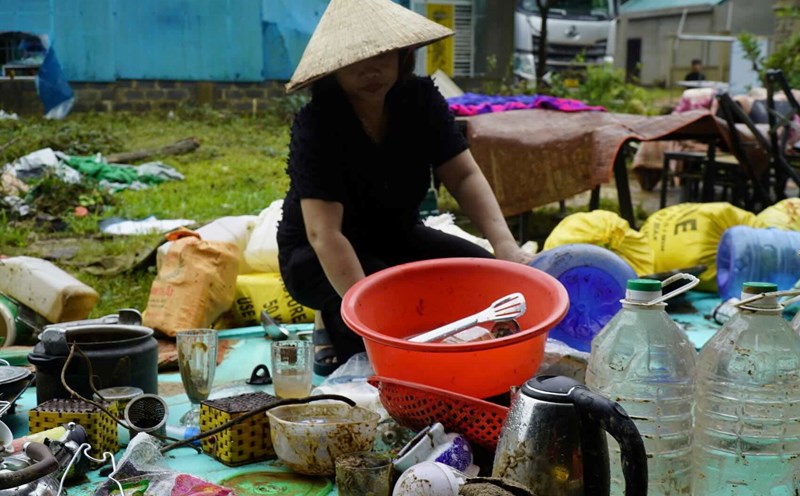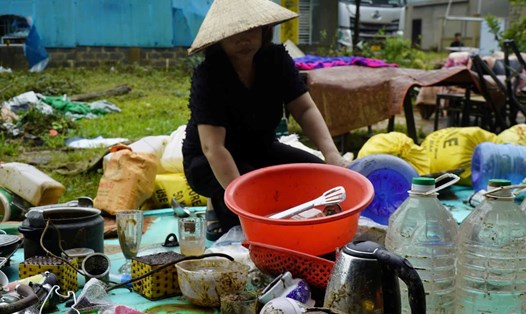Limit frozen assets, waste of resources
Chief Justice of the Supreme People's Procuracy Nguyen Huy Tien said that criminal proceedings in practice show many difficulties and problems, especially in handling evidence and assets in corruption and economic cases.
Many valuable evidences and assets that have been seized, temporarily detained, seized, or frozen for a long time have not been processed early enough to circulate, causing freezing and wasting resources, affecting the rights and interests of agencies, organizations, businesses, and individuals; there is a lack of measures for the prosecution agencies to implement from the beginning to prevent the transfer and dispersal of assets before there is sufficient basis to apply the measures of seizure and freezing...
According to Mr. Nguyen Huy Tien, the scope of the draft resolution has determined that the pilot handling of evidence, seized, temporarily detained, seized, and frozen assets will be implemented right from the stage of handling information about crimes, throughout the process of prosecution, investigation, prosecution, and trial, and will only be applied to criminal cases and incidents under the supervision and direction of the Central Steering Committee on Anti-Corruption and Negativity.
The draft resolution also stipulates five measures for handling evidence and assets, including: Returning money to the victim or depositing money in a bank pending processing; Depositing a security deposit to cancel the seizure, temporary detention, attachment, or blockade; Allowing the purchase, sale, or transfer of evidence and assets and handling the proceeds from the purchase, sale, or transfer; Handing over evidence and assets to the legal owner or manager for management, exploitation, and use; Temporarily suspending transactions; and suspending the registration, transfer of ownership, and use of assets.
Regarding the measure of temporarily suspending transactions; temporarily suspending registration, transfer of ownership, and use of assets, the Chief Justice of the Supreme People's Procuracy said that the pilot measure aims to prevent the dispersion and transfer of assets related to crimes from the beginning, creating an early step for inspection and verification. When there is sufficient basis and conditions, measures of seizure, temporary detention, attachment, and blockade will be immediately applied according to regulations. The resolution is expected to take effect from January 1, 2025 and will be implemented for no more than 3 years.
Assets are evidence that if left for a long time, lose value and cause waste.
Stating that the issuance of the resolution is very necessary, Lieutenant General Nguyen Hai Trung, Director of Hanoi City Police, said that the city police have to manage and process a huge amount of evidence every day and every hour, some of which has been around for many years, causing waste.
The first is wasting the value of the evidence itself. The second is having to have a large evidence warehouse. The third is having to arrange for someone to look after the evidence warehouse.
“Recently, we received dozens of tons of rare earth in a case but had to build a temporary house to store it. Even though it was a temporary house, we still had to ensure quality and avoid loss. Meanwhile, it took more than 1-2 people to look after it. If compared with the latest regulations, this is a very complicated, inconvenient, difficult and frustrating problem,” said Lieutenant General Nguyen Hai Trung.
Delegate Nguyen Huu Chinh (Hanoi Delegation) commented that the resolution should be issued sooner, because the current regulations are extremely inadequate, causing disadvantages for defendants and victims. According to the regulations, when initiating a case, the investigation agency has the right to freeze and seize assets. However, the final agency to handle these assets is the Court, which takes a very long time, usually lasting 1-2 years, causing damage to evidence.















